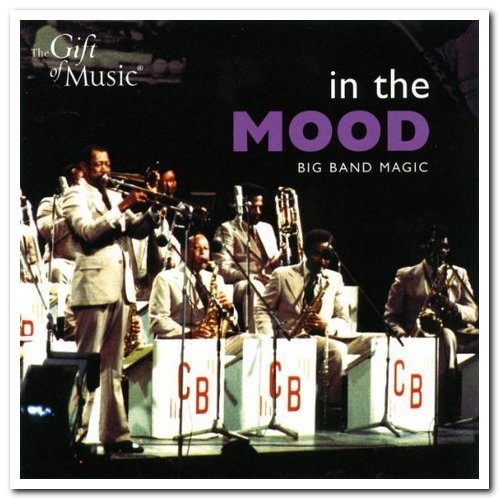A celebration of the great names who personified the swing years with the recordings that are associated with them. Great performances from Count Basie, Duke Ellington, Artie Shaw, Benny Goodman and, of course, the great Glenn Miller feature songs still as popular today as ever, including In the mood and Take the A Train.
The 1930s ushered in a style of music that became the most accessible and popular in jazz history. From 1935, when the USA was recovering from the Great Depression, big bands flourished as the dance craze swept the country. Nationwide exposure to swing music via radio broadcasts and recordings enabled the music to thrust into popular culture. Bandleaders including Benny Goodman, Count Basie, Duke Ellington, Artie Shaw, Tommy Dorsey, Charlie Barnet and Glenn Miller became household names and popular icons.
At the onset of the swing era, jazz had begun to take on more homogeneous characteristics. Prior to the 1930s in New York, Chicago and the Southwest, bands began replacing the traditional small group New Orleans style of jazz in favour of larger and more powerful groups, usually consisting of twelve to sixteen musicians. One of the reasons for the change was the limitation of the, then, current technology. With the lack of microphones, or any other form of electrical amplification, dance bands had to consider other methods of being heard in large ballrooms and dance halls. By increasing the number of musicians, the volume also increased.
With its larger ensemble size, arrangers became vital to the success of the bands. Bandleaders such as Duke Ellington became famous as composers and arrangers or commissioned music for their groups, in contrast to the early New York big band style of the 1920s which had focused on the orchestration of current, popular tunes and original compositions.
Benny Goodman became known as The King of Swing and he is most closely associated with the years of 1935 -1945, the period that became known as The Swing Age . In August 1935, his band played at a ballroom in Los Angeles. The dancers became so enthralled with the virtuosity of the arrangements and solos that they crowded around the bandstand to listen a performance that has since been regarded as a highpoint in swing s history.
Another name indelibly linked with the swing era is Glenn Miller. His sound became famous and readily identifiable. He realized he could produce a unique sound by having the clarinet holding a melodic line while the tenor sax plays the same note, supported harmonically by three other saxes. This individual and easily recognizable style would set his band apart from the others. Formed in March 1938, his orchestra would include such vocalists as Tex Beneke, Marion Hutton, Ray Eberle and The Modernaires.
On our special tribute, we celebrate the great names who personified the swing years with the recordings that are so associated with them. Two classics from Glenn Miller: In the Mood and American Patrol...Count Basie s irrepressible Jumpin at the Woodside...Frenesi one of Artie Shaw s greatest hits....Woody Herman and his At the Woodchopper s Ball. The most famous trumpeter of the era was Harry James and we feature two contrasting recordings Ciribiribin and Trumpet Blues and Cantabile. In the forefront of British bands, Ted Heath led an ensemble for twenty five years that had quality, precision and an ability to swing so it is fitting that he should be included in this illustrious company.
:: TRACKLIST ::
1:In the Mood by Glenn Miller Orchestra
2:Exactly Like You by Count Basie
3:Caldonia by Woody Herman
4:Take the A Train by Duke Ellington
5:Don't Get Around Much Anymore by Duke Ellington
6:Woodchopper's Ball by Woody Herman Ensemble
7:Jumpin' at the Woodside by Count Basie
8:Experiment by Ted Heath Orchestra
9:Frenesi by Artie Shaw
10:Air Mail Special by Lionel Hampton
11:Ciribiribin by Harry James Orchestra
12:American Patrol by Glenn Miller
13:Cherokee by The Charlie Barnet Orchestra
14:Don't Be That Way by Benny Goodman
15:On the Avenue: I've Got My Love to Keep Me Warmby Les Brown Orchestra
16:Humoresques, Op. 101: No. 7. Poco lento e grazioso in G-Flat Major by Guy Lombardo Royal Canadians
17:Shine On, Harvest Moon by Tommy Dorsey
18:Blues in the Night: Blues In the Night by Geraldo Orchestra
19:Hot mallets by Lionel Hampton
20:Trumpet Blues and Cantabile by Harry James



